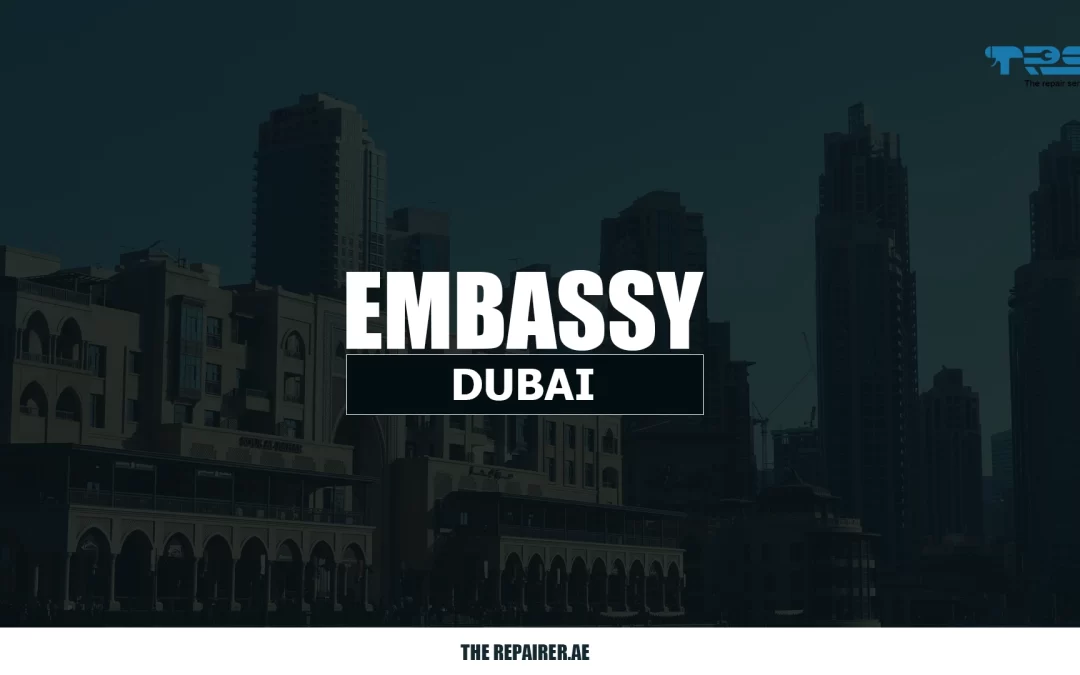embassy dubai Due to the high level of interaction between countries in today’s interconnected world,
there is a need for diplomatic offices, such as embassies and consulates,
in each country to assist in and allow such interactions to occur.
Ambassadors are representatives of their countries’ governments abroad in matters between the two countries.
These offices also provide services to potential immigrants and international travelers.
Although the terms “Embassy Dubai” and “consulate” are used interchangeably, both terms are different.
Embassy Dubai Definition Of The Embassy
An Embassy Dubai is larger and more critical than a consulate and is described as a permanent diplomatic mission,
generally located in the nation’s capital. For example, the US Embassy Dubai in Canada is located in Ottawa, Ontario.
Capitals such as Ottawa, Washington, D.C., and London have approximately 200 embassies each.
The Embassy Dubai is responsible for representing the home country, handling major diplomatic issues (such as negotiations),
and preserving the rights of its citizens abroad.
An ambassador is the highest-ranking official in the Embassy Dubai and serves as the chief diplomat and spokesperson for the home government.
Ambassadors are usually appointed by the highest level of a home government.
In the United States, ambassadors are appointed by the president and confirmed by the Senate.
Usually, if a country recognizes another as a sovereign,
an Embassy in Dubai is established to maintain foreign relations and provide assistance to traveling citizens.
The Embassy Dubai is opposite the consulate
By contrast, a consulate is a smaller version of an Embassy Dubai and is generally located in the larger tourist towns of the country,
but not in the capital city. In Germany, for example, US consulates are located in cities such as Frankfurt,
Hamburg, and Munich, but not in the capital, Berlin. The Embassy Dubai is located in Berlin.
Consulates (and their chief diplomat, the consul) deal with minor diplomatic issues such as issuing visas,
assisting with trade relations, and taking care of immigrants, tourists, and expatriates.
In addition, the United States has Virtual Presence Positions (VPPs) to help people around the world learn about the United States
and the regions that the VPP focuses on.
These were created so that the United States could have a presence in important areas without being physically there.
Some examples of VPPs include VPP Santa Cruz in Bolivia,
VPP Nunavut in Canada, and VPP Chelyabinsk in Russia.
There are about 50 VPs around the world.
Embassy Dubai Mexican consulates
Mexico is distinguished by the fact that its consulates are not all limited to large tourist cities,
as is the case with the consulates of many other countries.
For example, although there are consulates in small border towns such as Douglas, Nogales, Arizona,
and Calexico, California, there are also many consulates in cities further from the border, such as Omaha
Nebraska. In the United States and Canada,
there are currently 57 Mexican consulates. Mexican embassies are located in Washington, D.C., and Ottawa.
Countries that do not have diplomatic relations with the United States
Although the United States has strong diplomatic relations with many foreign countries,
there are four that it does not currently do business with.
As for Bhutan, the two countries have never established official relations,
and Syrian relations were suspended in 2012 after the war broke out there. However,
the United States is able to maintain various levels of informal contact with each of these countries
by using its embassies in neighboring countries or by being represented by other foreign governments.
Regardless of the occurrence of foreign representation or diplomatic relations,
they are important in the global politics of traveling citizens and the economic
and cultural matters that result when two nations have such interactions.
Embassy Dubai services for Qatari citizens
The Consular Affairs Department responds to all inquiries from citizens
and residents inside and outside the State of Qatar.
The Consular Affairs Department provides a number of services to Qatari citizens abroad through diplomatic
and consular missions, including:
Issuing transit tickets for Qataris born abroad.
Issuing transit tickets for Qataris who have lost their passports abroad.
Issuing new passports for Qatari citizens whose passports have expired abroad as a result
of the lengthy period of study, treatment, or training courses)
Facilitating the return of Qatari citizens to the country if they lose their passports in countries with no Qatari Embassy Dubai.
Issuing various permits for Qatari citizens to facilitate their affairs abroad and in Qatar.
Protecting and looking after the interests of Qataris abroad.
Standing beside Qataris who may face problems abroad
and coordinating with qualified lawyers to plead for them when needed.
Documents issued in the United Arab Emirates, Kuwait, and Iraq
To be valid in Portugal, documents issued in the UAE, Kuwait,
and Iraq must be legalized by the Embassy Dubai of Portugal in Abu Dhabi,
which has jurisdiction over these three countries in the region.
This attestation requires the documents to be pre-attested by the relevant Ministry of Foreign Affairs (MoFA),
after which the Embassy Dubai will be able to recognize the authenticity of
the signature affixed to the Ministry of Foreign Affairs stamp.
requirements:
Original passport or a copy of the passport legalized by the competent
authorities or a Portuguese identity card (if available)
The purpose of the certificate is explained by document evidence
A letter of authorization is required if represented by others
If the document is not in Portuguese, English, or French in the original,
the applicant must bring a certified translation of it
How to legalize documents at the Embassy Dubai
Interested parties can book an appointment to come to the Embassy Dubai,
and present the original document(s), previously certified by the Ministry of Foreign Affairs
of the United Arab Emirates, Kuwait, or Iraq.
Depending on the number of documents, you will be duly notified at the time of legalization.
It aims to achieve seven main objectives, namely:
Proposing federal laws regulating business and labor affairs and monitoring their implementation.
Managing the business market and suggesting appropriate labor policies for the state.
Organizing labor relations with the aim of achieving stability, increasing productivity,
and creating job opportunities.
Participate in the formation of economic and social policy at the national level.
Provide excellent services to meet the needs of users in accordance with applicable rules and regulations.
Providing for the organization and supporting work relations at the international and Arab levels.
Support and encourage the work of citizens by providing them with job opportunities.
Since the Ministry of Human Resources and Emiratisation is concerned with developing its services,
ensuring their quality, and increasing the confidence of its users,
to keep pace with the smart government and to enhance the ease of doing business in the country,
the Ministry has started the electronic transformation of its services since 2007.
This transformation became more efficient in 2008 when the Ministry electronically transformed
all its services under the name “facilitation”. This system has achieved multiple successes on all levels.
Currently, most of the Ministry’s services are available online after contacting the Ministry of Interior to link
the work visa with the “Work Entry Visa Issuance Service”. These projects aim to link 27 services to save time,
the effort, and money for the ministry’s users,
in addition to linking the employee’s salary details to the Central Bank of
the United Arab Emirates through the wages protection system
and agreeing to use the identity for electronic signature on all transactions.

